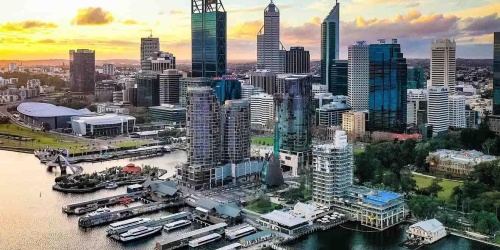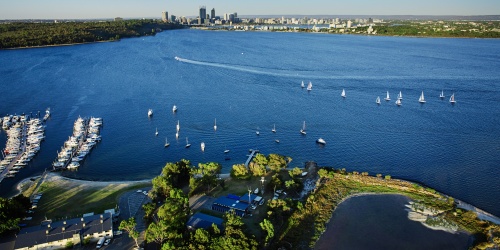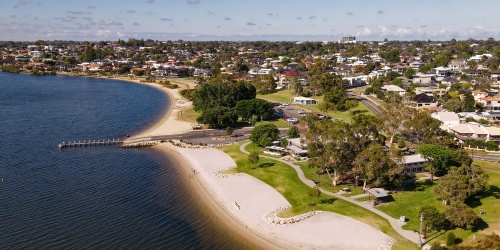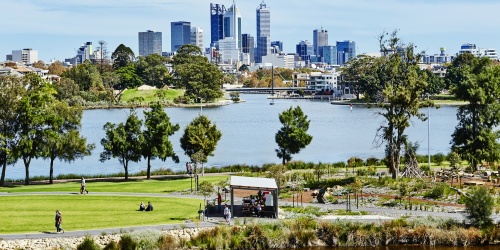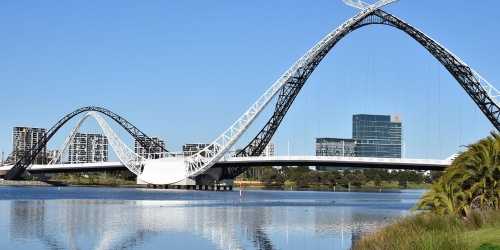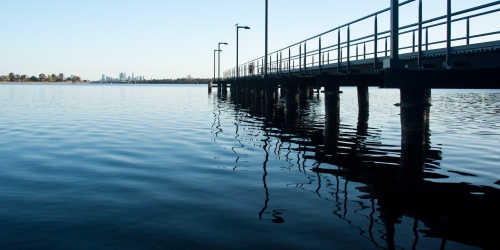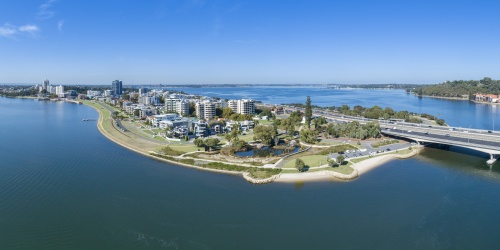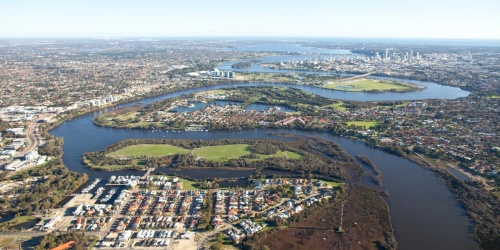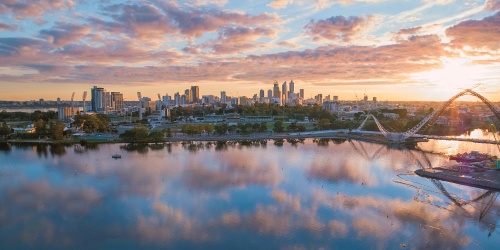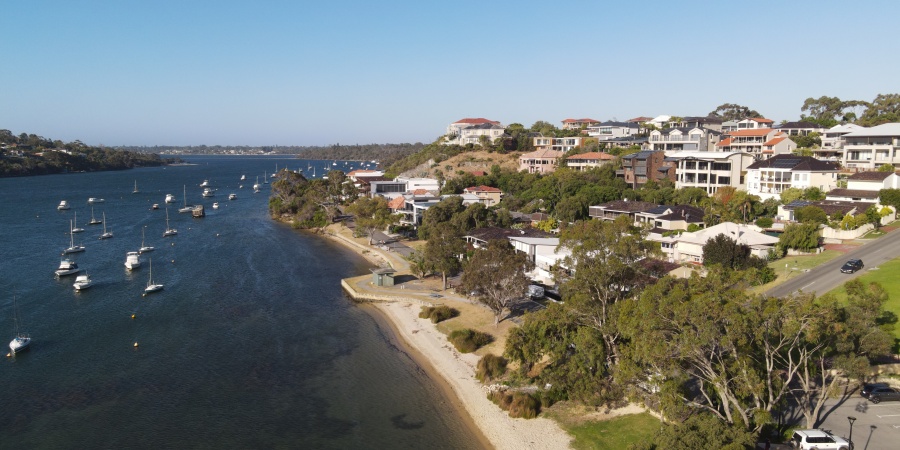
Bicton Baths. Photo by Leuan Hook
DBCA and/or the Swan River Trust provides advice on approvals by other authorities that may affect the Swan Canning Development Control Area (DCA) . These types of approvals are processed by the Western Australian Planning Commission (WAPC) or Local Government.
More information on the DCA, including how to find out if your property is affected by the DCA, is available on the Swan Canning Development Control Area page.
Even if your application is not processed by DBCA, we encourage you to chat to us before submitting your form to the WAPC or Local Government as this can speed up the 42-day period that DBCA is given to respond to your proposal. We can also advise what policies will apply to your proposal and what conditions DBCA (or the Swan River Trust) may recommend for your approval.
Types of applications that may affect the DCA
DBCA provides advice on behalf of the Swan River Trust to the WAPC for the following type of applications made under Clause 45(2)a of the Metropolitan Region Scheme, when:
- development is proposed on a lot that is partly in and partly out of the DCA (Clause 45(2)a(i) of the MRS); or
- development is proposed on a lot that abuts the waters (the rivers) of the DCA (Clause 45(2)a(ii) of the MRS)
DBCA has 42 days to provide a response to these applications. The WAPC must adhere to DBCA’s recommendations for these types of applications.
DBCA also provides advice on behalf of the Swan River Trust to the local government for applications made under Clause 45(2)b of the Metropolitan Region Scheme when:
- development is proposed on a lot that abuts the DCA (Clause 45(2)b(i) of the MRS – see Figure 1 below); or
- development is proposed on a lot that is likely to affect waters of the DCA (Clause 45(2)b(ii) of the MRS
DBCA has 42 days to provide a response to these applications and the local government is to have regard to this response.
DBCA also provides advice on:
- Proposed subdivisions or other types of development that are not directly adjoined to the DCA but are likely to affect the waters of the DCA. Some examples include:
- Development that might mobilise sediment, nutrients, or contaminants to the DCA via tributaries or stormwater.
- Development that may impact groundwater flows or groundwater quality to the DCA such as shallow groundwater management infrastructure or onsite wastewater systems.
- Development that might alter the hydrology of the waterways and wetlands in the DCA.
- Scheme amendments, structure plans, or any other strategic documents that include or are likely to affect the waters of the DCA.
Jump to our policies, plans and guidelines manual page to see the information required by DBCA for a proposed development around the river. These are the most common policies that apply to the types of applications listed above:
- State Planning Policy 2.9 – Water resources
- Policy 42 – Planning for land use, development and permitting affecting the Swan Canning Development Control Area
- Policy 48 – Planning for development setback affecting the Swan Canning Development Control Area
- Policy 49 – Planning for stormwater management affecting the Swan and Canning Rivers
- Policy 51 – Planning for wastewater management affecting the Swan Canning Development Control Area
How to apply
Refer to your local government website for details on how to apply for approval, or the Department of Planning, Lands and Heritage application page.
If you’re unsure whether your proposal requires an approval through DBCA or another government agency, please come and chat to us. We can let you know what kind of approval you’ll need and advise which DBCA policies will apply to your proposal, and what conditions DBCA may recommend.
Frequently asked questions
What information does DBCA, or the Trust, require in addition to the WA Planning Commission or the local government’s requirements?
When preparing your application, consider how the development may impact the rivers or their tributaries – this includes during construction (is any dewatering required?) and ongoing impacts (how will stormwater and groundwater be managed?).
The following details should be considered when preparing your application:
- Scaled plans and proposal specifications (including materials, colours, etc.) of the development.
- Method of construction, excavation, infill or retaining.
- Details on how environmental risks associated with the construction will be managed.
- Ongoing groundwater management.
- Ongoing stormwater management.
- Ongoing wastewater management.
DBCA and the Swan River Trust will not support proposals that conflict with its policies, plans and procedures manual. For further information on what to include in your application, it’s recommended that you refer to Policies, plans and guidelines manual for more information:
These are the most common policies that apply to development around the river:
- State Planning Policy 2.9 – Water resources
- Policy 42 – Planning for land use, development and permitting affecting the Swan Canning Development Control Area
- Policy 48 – Planning for development setback affecting the Swan Canning Development Control Area
- Policy 49 – Planning for stormwater management affecting the Swan Canning Development Control Area
- Policy 51 – Planning for wastewater management affecting the Swan Canning Development Control Area
If you’re unsure whether your proposal requires an approval through DBCA or another government agency, please come and chat to us. We can let you know what kind of approval you’ll need and advise which DBCA policies will apply to your proposal, and what conditions DBCA may recommend.
Where do I lodge my application?
These applications are not processed by DBCA. For details on how to apply for an approval, please refer to:
- your local government website, or
- the Department of Planning, Lands and Heritage application page
My application has been referred to DBCA, how do I find out the status of my application?
DBCA has 42 days to provide a response to the local government or the WA Planning Commission.
If you would like an immediate update on your application please contact DBCA’s Swan Canning Waterways Branch, Statutory Assessments Unit, on 9219 9000 or at rivers.planning@dbca.wa.gov.au.
How long will it take for my application to be determined?
Generally, the local government and the WAPC has 60 days from the date of its receipt of an application to issue its decision. If additional information is required, the applicant is contacted and requested to provide this information.
The 60-day period begins when that information is received. In such instances arrangements may be made to obtain the applicant’s agreement to extend the 60-day determination period. If a decision is not issued within the 60-day period or an agreed extension period, then the application is deemed to be refused and a right of review applies.
For further information, please refer to:
- your local government website, or
- the Department of Planning, Lands and Heritage application page
Still have questions?
If you have read through the frequently asked questions and require assistance, please contact DBCA’s Swan Canning Waterways Branch, Statutory Assessments Unit, on 9219 9000 or at rivers.planning@dbca.wa.gov.au.
